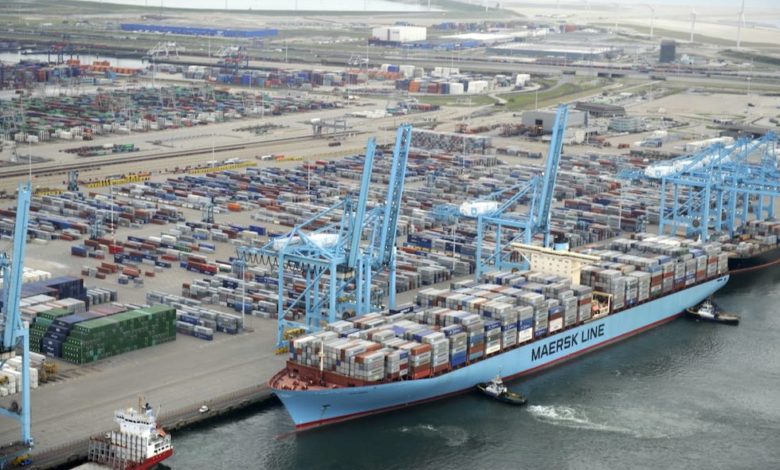Opening the silos: data-sharing is key in port call collaboration

Change of industry mindset needed for ship voyage optimisation to curb costly port congestion and cut emissions, industry forum is told.
Greater collaboration and information-sharing is needed among stakeholders to optimise ship route planning and curb congestion at ports that is spurring pollutive emissions and raising costs for shipping companies.
“Data transparency is the oil in the machine to make port call execution more efficient,” Captain Ben van Scherpenzeel, director of nautical developments, policy and plans at the Port of Rotterdam, told a recent Immediasea forum of industry participants hosted by Blue-C.
Waiting time due to port congestion leads to increased ship emissions as well as higher operational costs for the shipowner from idle vessel time and increased fuel consumption, while cargo owners run the risk of demurrage charges if cargoes cannot be offloaded within the contractual time-frame.
This has increased pressure on ports to improve the efficiency of their logistics, as well as expand their infrastructure and workforce, to speed the flow of global maritime trade.
Inchcape Shipping Services chief executive Frank Olsen told the forum that increased interaction among the myriad parties involved in port calls – including port authorities, shipowners, ship agents, different cargo interests and service suppliers – is vital for end-to-end voyage optimisation to reduce port gridlock.
‘Giant puzzle’
“We have to find ways to share information and communicate. Right now, there is too much silo thinking where parties are not willing to share information that they think may give them a competitive advantage,” Olsen said.
He added “it is all about thinking holistically to bring together all the relevant information” so that the “giant puzzle” of port calls can work effectively.
Better access to such information for route planning purposes is necessary to achieve just-in-time (JIT) arrival so that a vessel also arrives at port at the right time when cargo-handling capacity is available, as well as other services such as bunkering, provisions and maintenance, he explained.
Olsen said such efforts represent “low-hanging fruit” that can make a difference to environmental pollution in the near term through lower fuel use as sailing speed is reduced to avoid the “rush-to-wait” at ports, thereby cutting NOx and SOx air-particle emissions.
To this end, Rotterdam port has joined forces with 10 other ports and six major carriers and agents, including Inchcape, to draft a business process for end-to-end planning of voyage execution from chartering of a ship to final berth, according to Scherpenzeel, who is also chairman of the International Taskforce for Port Call Optimisation.
Shipping body BIMCO has now drafted a Port Call Data Exchange Clause to support the IMO’s efforts to promote a common platform for information-sharing between ports, shipowners and other stakeholders, according to its head of contracts and clauses Grant Hunter.
This is alongside BIMCO’s newly published JIT arrival clause for charter contracts that is intended to reduce waiting times and inefficiencies at ports, as well as cut emissions.
Need for incentives
Hunter emphasised that contractual safeguards need to be in place both for the shipowner, if reducing a ship’s sailing speed results in failure to meet the due despatch obligation to deliver cargoes as fast as possible, and for the cargo owner in regard to the bill of lading.
“There is a need for flexibility between the contract parties. At the same time, there have to be incentives for such a JIT clause for owners and charterers, such as fuel and demurrage savings,” he said.
Similarly, Inchcape’s Olsen believes there has to be a regulatory regime of incentives and penalties to incentivise the right type of behaviour among players across the value chains. “Acting in a sustainable way should also attract a market premium,” he said.
Product tanker operator TORM’s head of global operations Andreas Greve Jørgensen told the forum that a lot of entities need to come together to make a change on port calls.
He pointed out that reducing greenhouse gas emissions makes “sound business sense” with synergies for shipowner and charterer.
But Jørgensen said: “It is only when we reach the tipping point that GHG can add value and not compromise earnings for shipowner or client that things will start to happen.”
